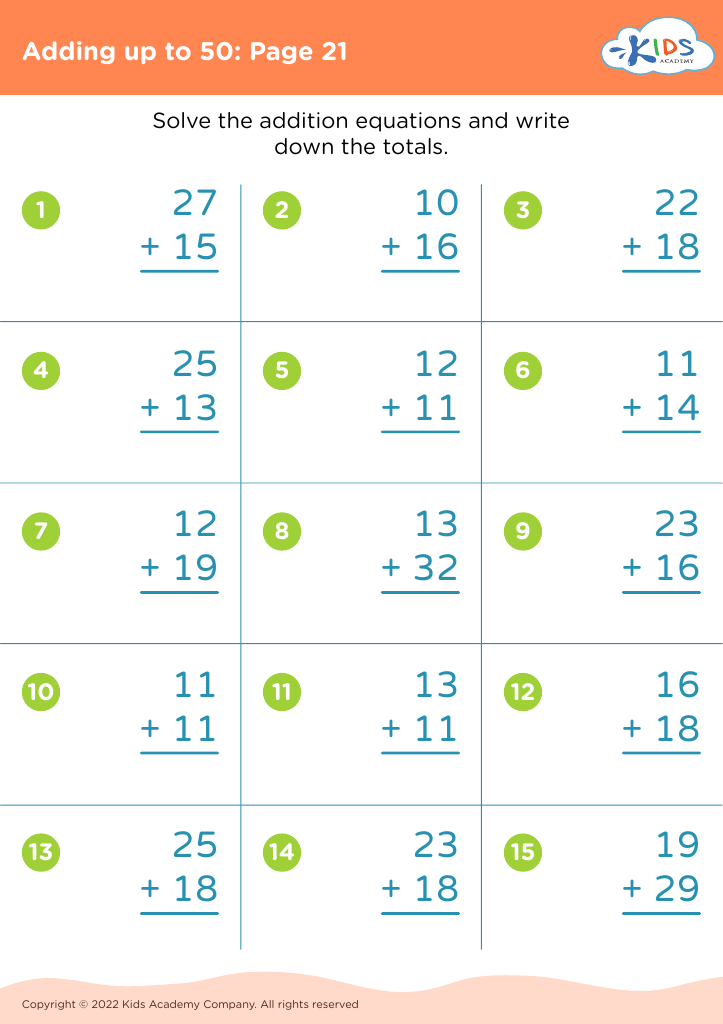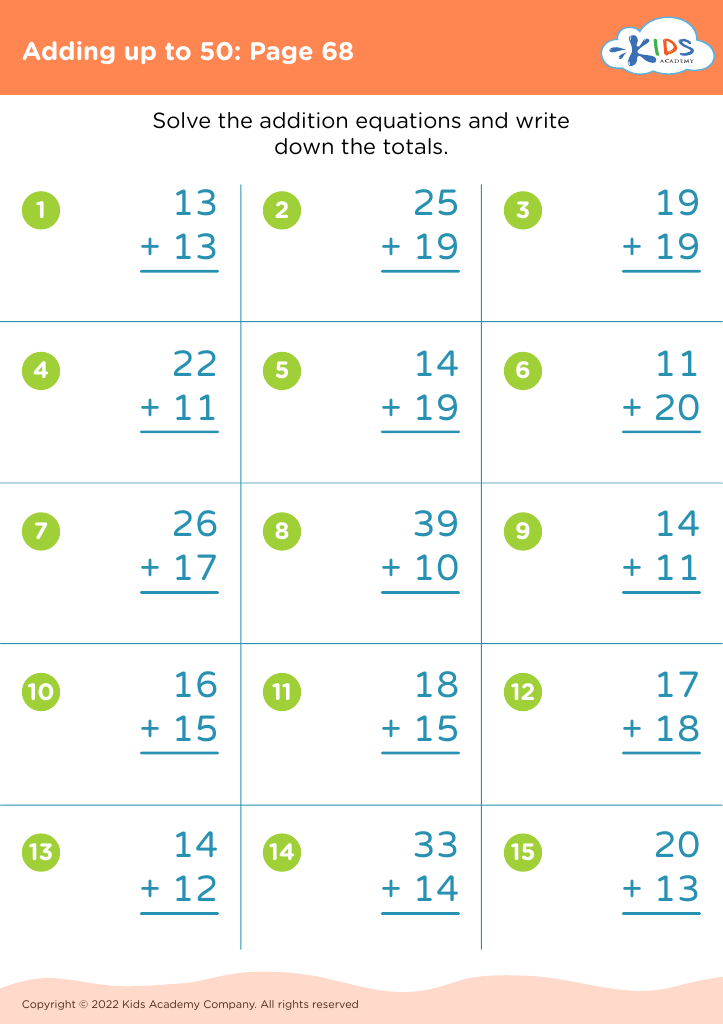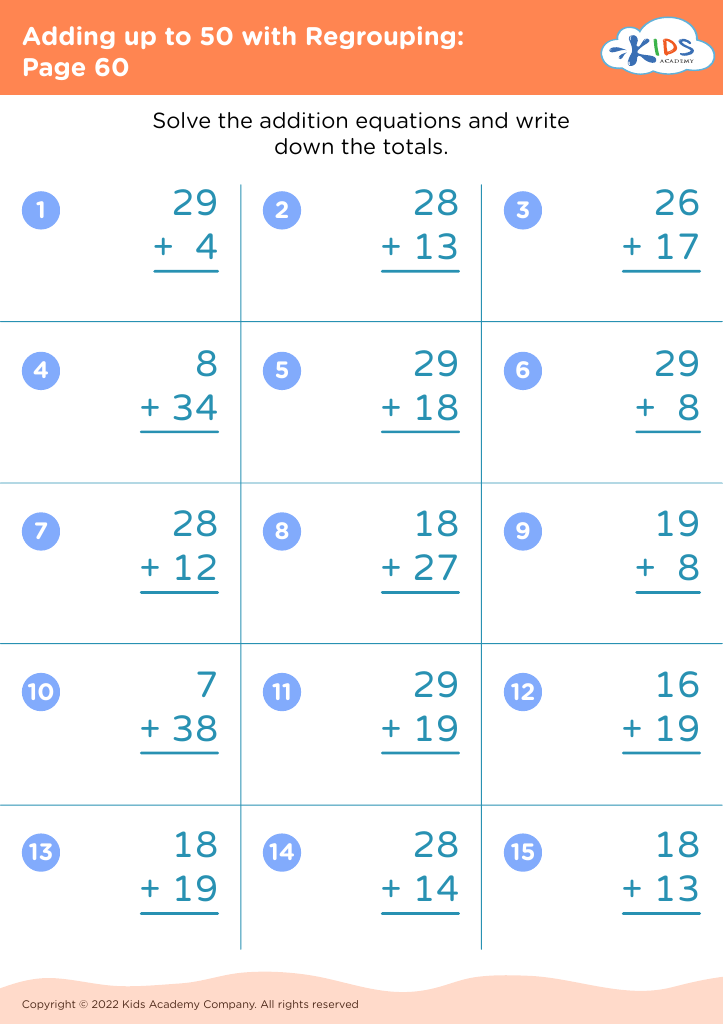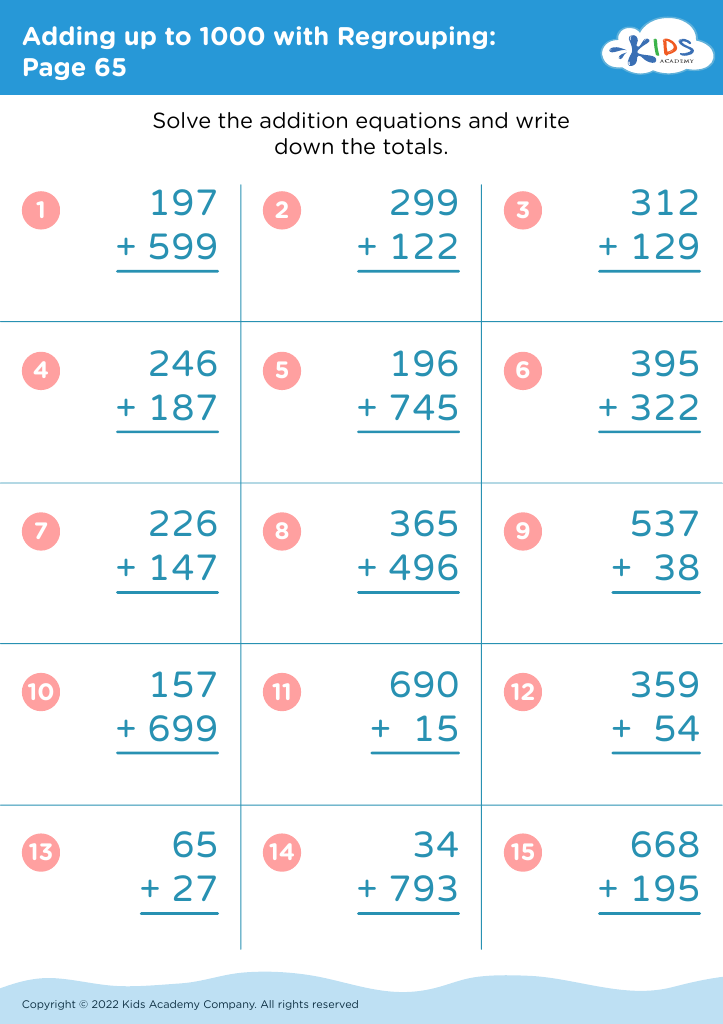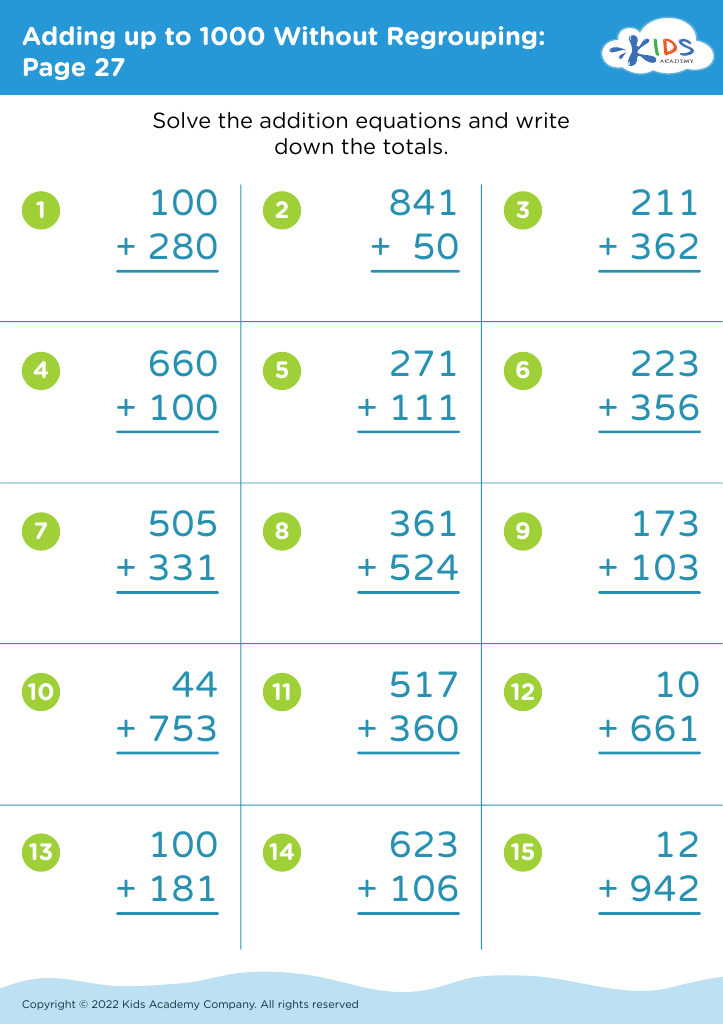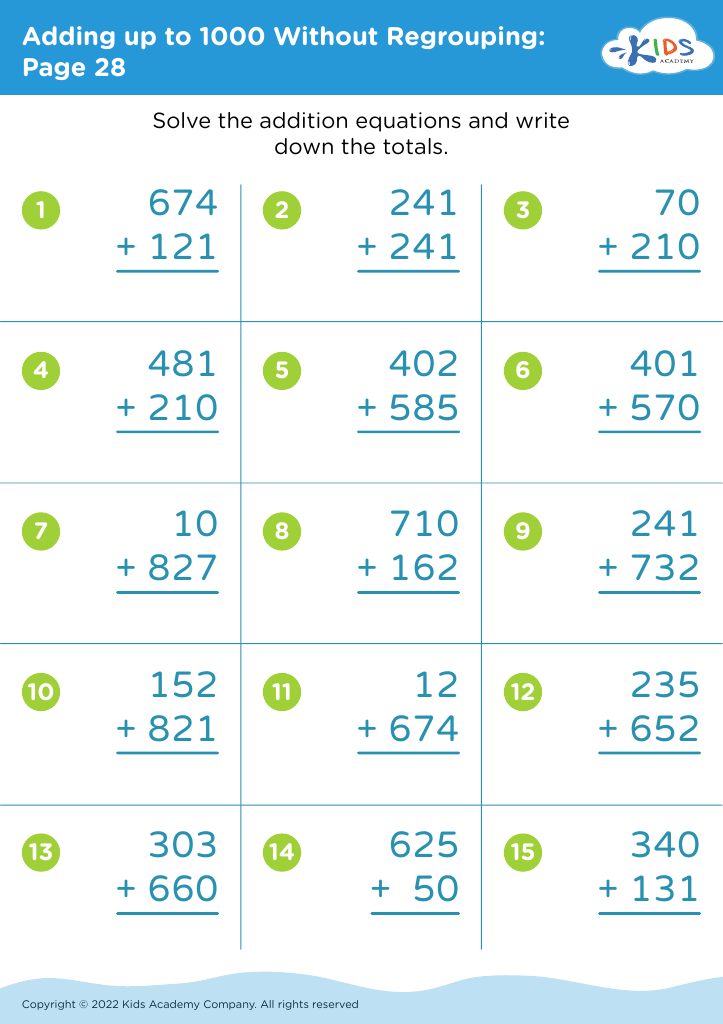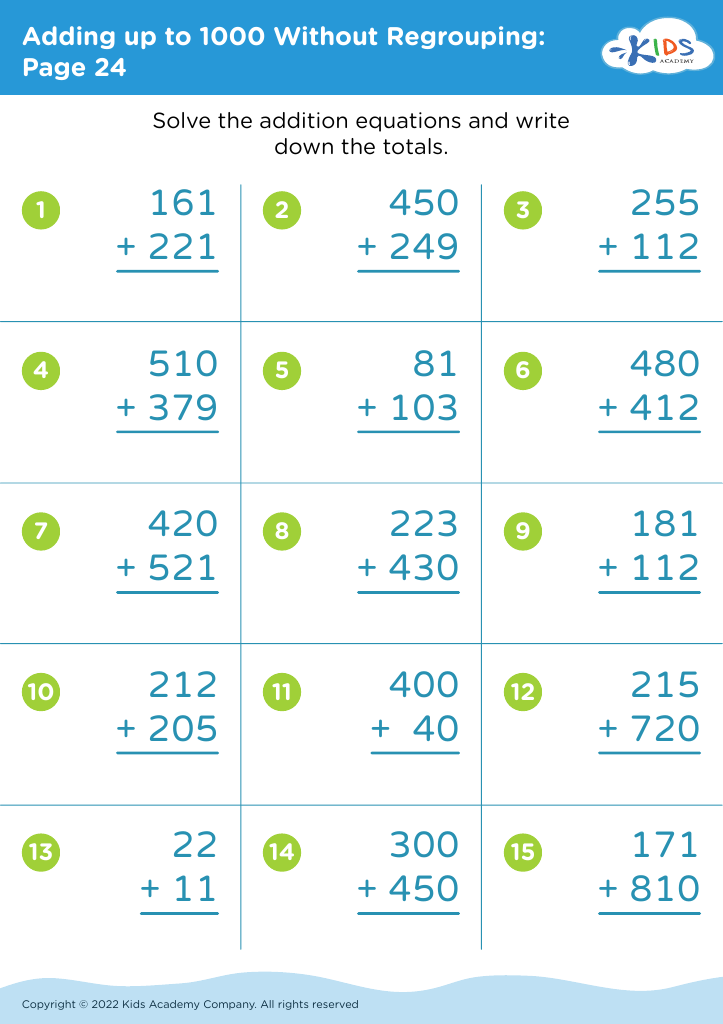Simplifying Fractions Addition & Subtraction Worksheets for Ages 5-9
18 filtered results
-
From - To
Welcome to our "Simplifying Fractions Addition & Subtraction Worksheets" designed specifically for children aged 5-9! These engaging resources help young learners develop a strong foundation in fraction concepts, making math fun and accessible. Our worksheets provide clear explanations and step-by-step guidance for adding and subtracting fractions, accompanied by colorful visuals to keep kids motivated. Perfect for classroom use or at home, these activities reinforce essential skills while promoting critical thinking. Encourage your child's confidence in mathematics through enjoyable, interactive learning experiences. Explore our collection today and watch them master fractions with ease!
Simplifying fractions addition and subtraction is an essential skill for children aged 5-9, making it crucial for parents and teachers to prioritize. First, these concepts build a strong mathematical foundation that fosters critical thinking and problem-solving abilities. At this young age, children are developing their numerical fluency, and gradually introducing them to fractions in a simplified manner can demystify more complex mathematical tasks later on.
Moreover, teaching these skills promotes an understanding of real-world contexts where fractions are used, such as cooking or sharing food. This practicality enhances student engagement and shows the relevance of math in everyday life. Simple fraction operations fine-tune a child's ability to visualize and manipulate numbers, which is vital for their cognitive development.
Additionally, learning how to simplify fractions encourages perseverance and resilience as young learners face challenges. By mastering these concepts early, they will gain confidence in their math abilities, paving the way for success in future mathematics education. Lastly, these early lessons evoke collaboration and communication skills as children discuss and work through problems, reinforcing the importance of collective learning in their educational journey. Thus, ensuring a strong foundation in simplifying fractions will benefit children prescriptively throughout their schooling experience.


